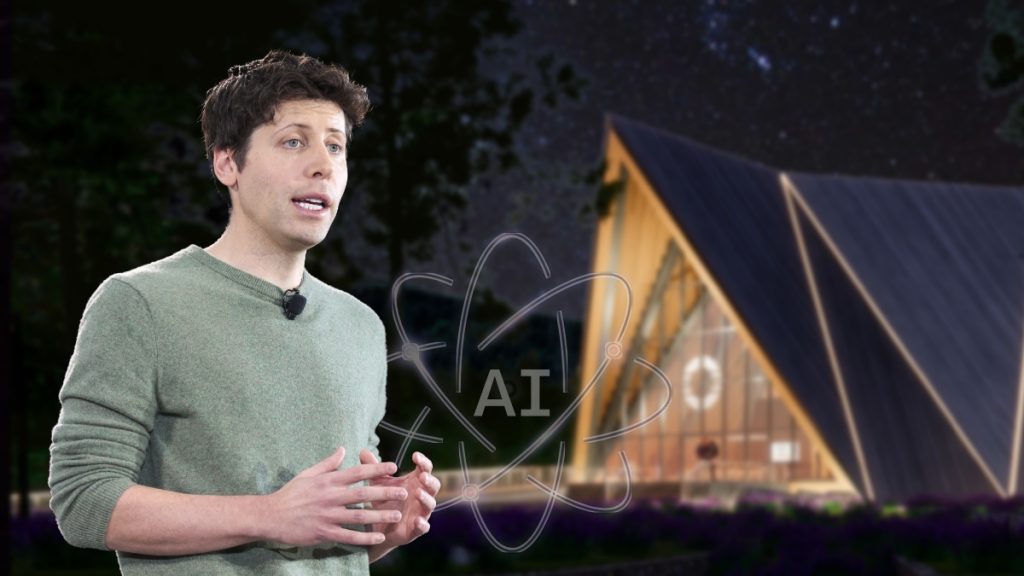
California-based nuclear fission microreactor startup Oklo is set to go public through a merger with AltC Acquisition Corp., co-founded by OpenAI CEO Sam Altman, hoping for carbon-free energy funding.
- Oklo aims to revolutionize commercial nuclear energy with small modular nuclear reactors, providing consistent, carbon-free energy for up to a decade without refueling.
- Sam Altman emphasizes the importance of affordable energy and intelligence, seeing nuclear power as a crucial component in meeting global energy demands sustainably alongside advancements in solar and storage.
On July 11th, California-based nuclear fission microreactor startup, Oklo, announced its plans to go public through a merger with AltC Acquisition Corp., a special purpose acquisition company (SPAC) co-founded by OpenAI CEO Sam Altman.
The merger is expected to raise up to $500 million for the nuclear startup, enabling the company to expand its supply chains and pilot manufacturing facilities. Altman’s involvement in the nuclear startup reflects his belief that affordable and clean energy, along with advancements in AI, is essential for shaping a better future.
“My whole view of the world is the future can be radically better and the two things that we really need for that are to lower the cost of energy and lower the cost of intelligence. And if we get those, we’ll be quite surprised about how different and how much better the future is,” Altman told CNBC.
Oklo aims to revolutionize commercial nuclear energy by developing small modular nuclear reactors. These reactors, known as Aurora, can operate for up to a decade without refueling, providing consistent, carbon-free energy 24/7. The company plans to target a diverse range of customers, including data centers, utilities, defense facilities, remote communities, factories, and industrial sites. By offering a reliable, cost-effective alternative to conventional energy sources, Oklo aims to meet the growing demand for clean energy and contribute to reducing greenhouse gas emissions.
Altman, known for his work in AI, emphasizes the importance of affordable energy and intelligence in shaping a radically improved future. Recognizing the significant energy requirements of AI technology, Altman believes that nuclear power, alongside advancements in solar and storage, is crucial for meeting global energy demands sustainably. By investing in nuclear projects like Oklo and nuclear fusion startup Helion Energy, Altman envisions a future where multiple sources of reliable, clean nuclear energy coexist to address the world’s energy deficit.
While Oklo faces regulatory hurdles and licensing challenges, the company has made significant progress in gaining approvals for its advanced reactor design and securing partnerships with organizations like the Southern Ohio Diversification Initiative. Oklo plans to deploy its first commercial plants in Southern Ohio by 2030 and is also working towards constructing a fuel-recycling facility to optimize the use of spent nuclear fuel.
In parallel with Oklo’s announcement, OpenAI has released the GPT-4 API, marking a significant milestone in AI language models. GPT-4, the latest iteration in the Generative Pre-Trained Transformer (GPT) series, offers advanced capabilities for language translation, text summarization, and question answering. The API allows developers to integrate GPT-4 into various applications, including chatbots, customer support tools, and writing and code creation software. While GPT-4 presents immense potential, it is essential to address its limitations, such as the occasional production of offensive or inaccurate content and ensure responsible and ethical usage.
As Altman’s vision intertwines AI and clean energy, the combined efforts of Oklo and OpenAI pave the way for a brighter and more technologically advanced future.
Inside Telecom provides you with an extensive list of content covering all aspects of the tech industry. Keep an eye on our Tech sections to stay informed and up-to-date with our daily articles.